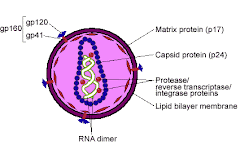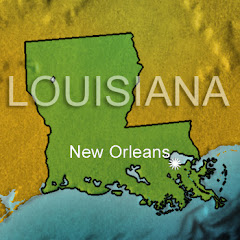"It's a daunting task to trace the origins of any deposit when there are about 700,000 global wire transfers occurring every day [ref]. Which is the dirty money and which is the clean stuff? Within the United States, there are two primary methods employed by the government to detect and combat money laundering: legislation and law enforcement.
The United States addresses the crime of money laundering in countless legislative acts. Here are just a few of them:
The Bank Secrecy Act (1970) basically eliminates all anonymous banking in the United States. It gives the Treasury Department the ability to force banks to keep records that make it easier to spot a laundering operation. This includes reporting all single transactions above $10,000 and multiple transactions totaling more than $10,000 to or from a single account in one day. A banker who consistently violates this rule can serve up to 10 years in prison.
The 1986 Money Laundering Control Act makes money laundering a crime in itself instead of just an element of another crime, and the 1994 Money Laundering Suppression Act orders banks to establish their own money-laundering task forces to weed out suspicious activity in their institutions. The 2001 U.S. Patriot Act sets up mandatory identity checks for U.S. bank patrons and provides resources toward tracking transactions in the underground/alternative banking systems frequented by terrorist money handlers. For a more complete list of U.S. anti-money-laundering legislation, see FDIC: Bank Secrecy Act and Anti-Money Laundering.
In addition to legislation intended to detect a money-laundering operation, undercover stings are also a component of the fight. The DEA's Operation Juno, which ended in 1999, is a prime example. The DEA out of Atlanta conducted a sting operation that involved providing resources to drug traffickers to launder money. The undercover DEA agents made deals with the traffickers to turn drug money from dollars to pesos using the Columbian Black Market Peso Exchange. The operation ended with 40 arrests and the seizure of $10 million in drug proceeds and 3,600 kilograms of cocaine.
Despite these victories, the truth is that no individual nation has the power to stop money laundering -- if one country is hostile to laundering, criminals simply look elsewhere for a place to clean their money. Global cooperation is essential. The most prominent international organization in this respect is probably the Financial Action Task Force (FATF), which has 33 member states and international organizations on its roster list as of 2005. The FATF issued the "40 Recommendations" for banks (there are actually 49 now, but the moniker hasn't changed) that have become the anti-money-laundering standard. These recommendations include:
* Identify and do background checks on depositors.
* Report all suspicious activity. (For example, if a background check revealed that depositor A works in a steel factory, and he typically deposits $2,000 every two weeks, a series of 10 $9,000 deposits over the course of two weeks should raise a red flag.)
* Build an internal taskforce to identify laundering clues.
The "recommendations" are really more like rules than friendly tips. The FATF keeps a list of "uncooperative countries" -- those who have not enacted the recommendations. The FATF encourages its member states not to deal with those countries in financial matters.
Other global organizations fighting money laundering include the United Nations, the International Monetary Fund, the World Bank, and smaller groups like the Caribbean FATF and the Asia/Pacific Group on Money Laundering.
While increased worldwide efforts are making a small dent in the money-laundering industry, the problem is huge, and the money launderers are winning overall. Countries with bank-secrecy rules, which arguably have legitimate benefits to the honest depositor, make it extremely hard to track money once it's transferred overseas. Still, the FATF's uncooperative list has gone from 15 countries in 2000 to two countries (Myanmar and Nigeria) in 2005. By most accounts, this is a significant sign of progress. Only increased global awareness and cooperation can curb the success of the money-laundering industry."
*Note: Stan "Pampy" Barre' was originally charged with money laundering. Stan "Pampy" Barre' later pleaded guilty to other charges. Let's hope Stan "Pampy" Barre' pay enough in restitution to make up for the original money laundering charges.
Tuesday, September 11, 2007
Fighting Money Laundering
Posted by
Boop
at
1:14 AM
1 comments
![]()
Labels: corrupt businessmen, FBI, fighting money laundering, government, Stan "Pampy" Barre, USDOJ
Sunday, September 9, 2007
Some Money Laundering Methods
"Here are some of the ways that corrupt individuals launder money:
Structuring deposits
Also known as smurfing, this method entails breaking up large amounts of money into smaller, less-suspicious amounts. In the United States, this smaller amount has to be below $10,000 -- the dollar amount at which U.S. banks have to report the transaction to the government. The money is then deposited into one or more bank accounts either by multiple people (smurfs) or by a single person over an extended period of time.
* Overseas banks
Money launderers often send money through various "offshore accounts" in countries that have bank secrecy laws, meaning that for all intents and purposes, these countries allow anonymous banking. A complex scheme can involve hundreds of bank transfers to and from offshore banks. According to the International Monetary Fund, "major offshore centers" include the Bahamas, Bahrain, the Cayman Islands, Hong Kong, Antilles, Panama and Singapore.
* Underground/alternative banking
Some countries in Asia have well-established, legal alternative banking systems that allow for undocumented deposits, withdrawals and transfers. These are trust-based systems, often with ancient roots, that leave no paper trail and operate outside of government control. This includes the hawala system in Pakistan and India and the fie chen system in China.
* Shell companies
These are fake companies that exist for no other reason than to launder money. They take in dirty money as "payment" for supposed goods or services but actually provide no goods or services; they simply create the appearance of legitimate transactions through fake invoices and balance sheets.
* Investing in legitimate businesses
Launderers sometimes place dirty money in otherwise legitimate businesses to clean it. They may use large business like brokerage firms or casinos that deal in so much money it's easy for the dirty stuff to blend in, or they may use small, cash-intensive businesses like bars, car washes, strip clubs or check-cashing stores. These businesses may be "front companies" that actually do provide a good or service but whose real purpose is to clean the launderer's money. This method typically works in one of two ways: The launderer can combine his dirty money with the company's clean revenues -- in this case, the company reports higher revenues from its legitimate business than it's really earning; or the launderer can simply hide his dirty money in the company's legitimate bank accounts in the hopes that authorities won't compare the bank balance to the company's financial statements.
Most money-laundering schemes involve some combination of these methods, although the Black Market Peso Exchange is pretty much a one-stop-shopping system once someone smuggles the cash to the peso broker. The variety of tools available to launderers makes this a difficult crime to stop, but authorities do catch the bad guys every now and then."
Posted by
Boop
at
7:30 AM
0
comments
![]()
Labels: corrupt businessmen, corrupt politicians, money laundering

















